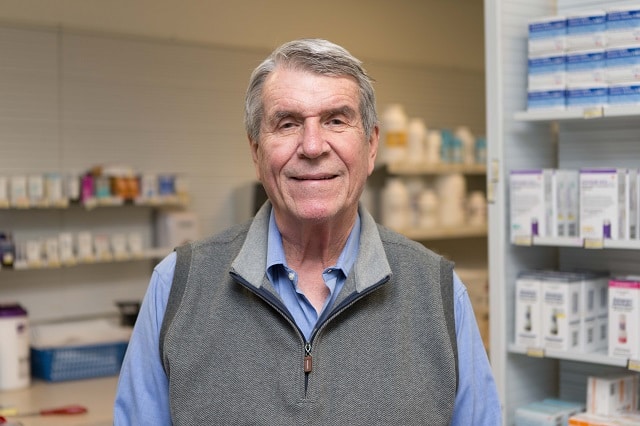
Rising drug costs have often been cited as a major hurdle to affordable healthcare options for Americans. The impact can be more severe than consumers simply trying to save money for when they’re ill. According to a recent article by U.S. News and World Report, “medical costs and out-of-pocket expenses result in high rates of bankruptcies, and 10-25 percent of patients either delay, abandon or compromise treatments because of financial constraints.”
At Citizen Potawatomi Nation, leaders in the tribal government, CPN Health Services and the office of self-governance have developed a program that offers some assistance in the face of these rising costs. Often, rising drug costs are borne more heavily by elders, who often live on fixed incomes and are either retired or unable to work.
For CPN tribal members 63 years of age or older as well as CPN members on Social Security disability, the tribal mail order pharmacy program alleviates some burdens of paying for these drugs. It pays for certain medications at no cost to the patients and is currently available to beneficiaries residing in all 50 states and several foreign countries and U.S. protectorates.
The program, nearing its second decade of existence, originally operated as a part of the CPN Health Services Pharmacy. Increasing participation in the program forced the separation of the two, and for the last decade the mail order pharmacy has been on its own, funded by third party collections such as Medicare, Medicaid and private insurance. As part of the tribe’s efforts to extend health-related services to all members regardless of location, beneficiaries have personal access to the mail order pharmacist via telephone or email on business days, resulting in compliance with medication therapy plans from medical providers.
In 2015, the program served 924 CPN patients and issued more than 20,000 prescriptions. The cost of these services totaled more than $913,000.
Separate from the mail order pharmacy program, CPN Health Services operate two different, more traditional pharmacies, one at the CPN Health Clinic West and another at the CPN Health Clinic East. Though these operations more closely resemble what an average, private sector pharmacy would look like, they have their own unique operating circumstances.
“The two clinic pharmacies, and clinics, are funded by the Indian Health Service,” explained longtime CPN Pharmacy Coordinator Joe LaReau, DPh. “The challenge for the clinics and the pharmacies is to offer the best services possible to our patients and pharmacy recipients with the funding we have available to us and to look ahead to our needs and stay within our yearly budgets.”
While the mail order pharmacy is restricted to only Citizen Potawatomi above the age of 63 or on Social Security disability, the main pharmacies inside the health clinics serve tribal members, employees and members of federally recognized tribes receiving treatment at CPN clinics.
To learn more about the services available at the CPN Health Services Pharmacies or CPN Mail Order Pharmacy Program, visit www.potawatomi.org/services/health/clinics or call 866-900-5236.
